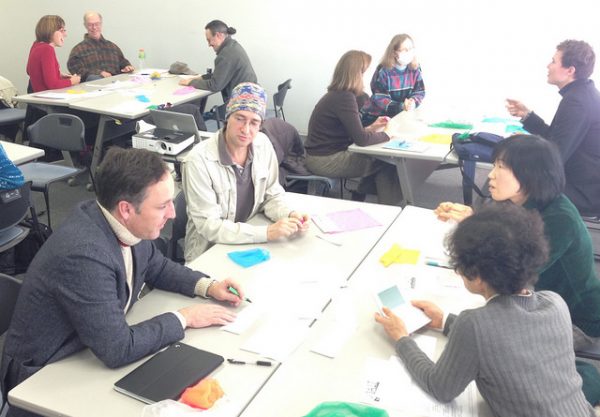
Duolingo, the free language-learning platform, has reached more than 200 million registered users around the world. For some, learning a new language is a hobby; for others, it’s a necessity. Whatever the reason, social science research demonstrates that learning a new language has significant social and cultural benefits.
Learning a new language can improve interpersonal skills. For immigrants, it not only can increase earnings and labor market opportunities, but it can also improve adjustment into a new cultural context. Many factors influence this learning process. One study of 180,000 immigrants found that the societies of origin and destination play the biggest role in determining language proficiency — societies that promote the coexistence of multiple languages can actually encourage newcomers to learn a new language.
- Thomas J. Espenshade and Haishan Fu. 1997. “An Analysis of English-Language Proficiency among US immigrants.” American Sociological Review 62(2): 288-305.
- Frank Van Tubergen and Matthijs Kalmijn. 2005. “Destination-Language Proficiency in Cross-National Perspective: A Study of Immigrant Groups in Nine Western Countries.” American Journal of Sociology 110(5): 1412-1457.
Learning a new language also influences the way children form and maintain their friendships. One study demonstrated that fluent bilingual children, and bilingual children whose dominant language was not English, surpassed their peers in getting along with children from different backgrounds, comforting or helping other children, and expressing feelings, ideas, and opinions in positive ways. When children bridge two languages and two cultures at the same time, they are better able to interact with others and build stronger bonds.
- Robert P. Moreno and Deanne R. Pérez-Granados. 2002. “Understanding Language Socialization and Learning in Mexican-Descent Families: Conclusions and New Directions.” Hispanic Journal of Behavioral Sciences 24(2): 249-256.
- Ariela Schachter. 2016. “From ‘Different’ to ‘Similar:’ an Experimental Approach to Understanding Assimilation.” American Sociological Review 81(5): 981-1013.
In sum, learning a new language is not only about studying words, pronunciation, or grammar structure. The process can have substantial payoffs for social skills and integration.

Comments